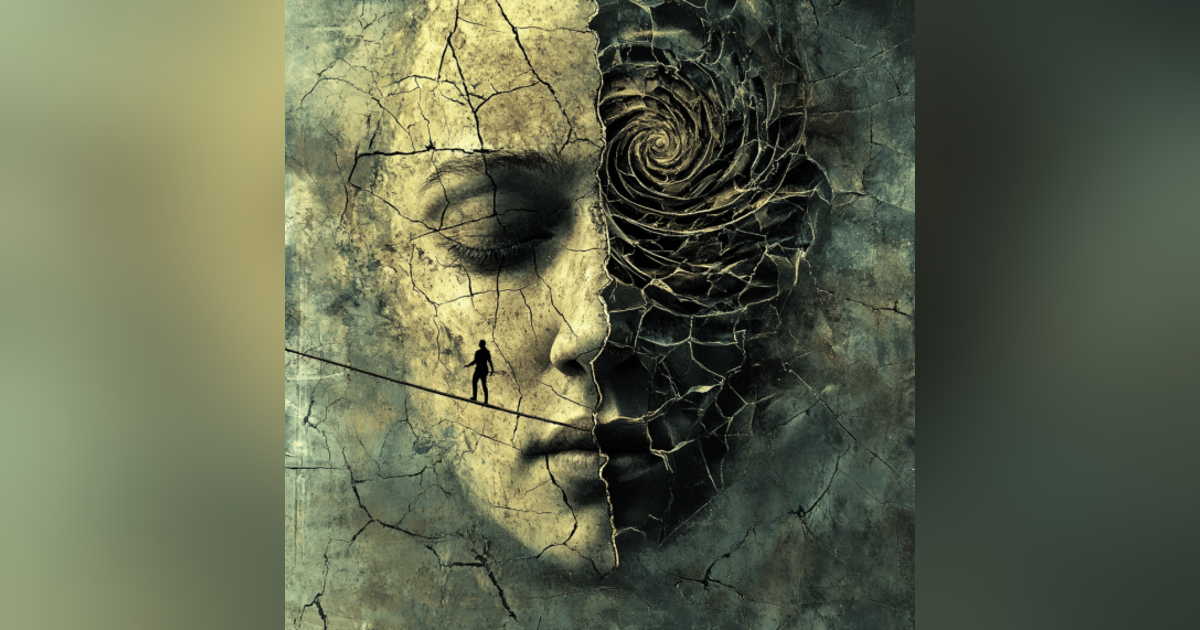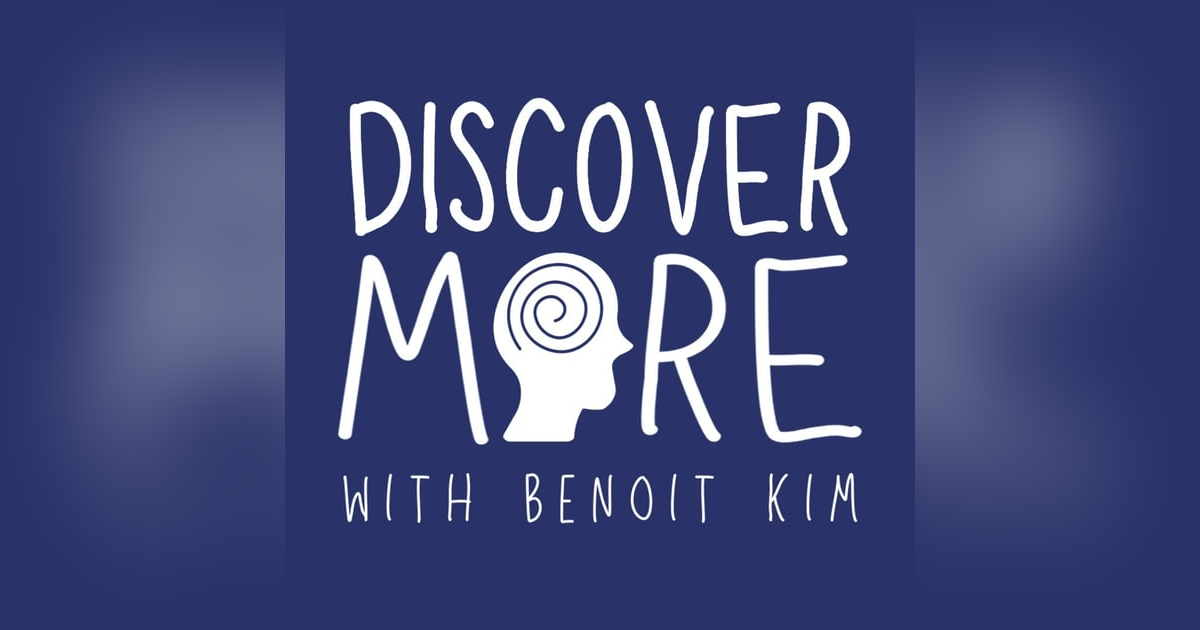#164. Why Trauma Is Not Our Identity? - Dr. Frank Anderson | How To Be Loved


Why does trauma repeat itself? What are the hidden costs of being normal? What is trauma healing?
According to Forbes Health, in 2023, over 70% of the survey participants reported experiencing at least one traumatic event and 31% said they were exposed to four or more traumatic events in their lifetime.
Today’s conversation will teach you why our trauma is not our identity.
Dr. Frank Anderson is a trauma expert, Harvard-trained psychiatrist, therapist, global speaker, and bestselling author.
Expect to learn how trauma distorts our memories, the hidden costs of being normal, why trauma is not our identity, how to redefine our trauma, why wounds drive our attraction toward others, and much more.
Welcome to Discover More!
Let's get this started.
Rate The Podcast:
https://ratethispodcast.com/discovermore
Show Notes
Frank’s Website
Frank’s Instagram
Frank’s Book
*
Join Our Community
Discover More Website
Short-form Content
*
Discover More is a top ten social sciences podcast for independent thinkers who appreciate the importance of mental health, psychology, and social sciences. Looking for deep thinking?
*
Listen to all full-length episodes on audio:
Apple Podcasts: HERE
Spotify: HERE
*
Thank you for Discovering More with us!
Because literally spent my whole life wanting to be loved. And I didn't even have that awareness. Most of my decisions were organized around this missing piece for me as a kid. Because every kid wants that. Even if your parents are toxic.
Discover More is a podcast for independent thinkers who appreciate the importance of mental health and social sciences. Dr. Frank Anderson is a trauma expert, Harvard trained psychiatrist, therapist, global speaker, and bestselling author. Email Ben to schedule a free 30 minute consultation to start discovering more about your mental health's journey.
Franklin: Did you ever get a big balloon from your mom? Franklin: We sometimes forget the happy moments we share, especially given our family trauma. Even with trauma, even with sadness, there are sprinkles and cocktails of happiness and joy that we often forget.
My relationship with anger is so much different than it's been. Most of my life I have been so anger phobic, nice, kind to a fault. I have learned to be with anger in a way that's not terrifying and scary to me anymore.
For your son and your dad, anger is your primary coping. The conflict avoidance didn't help your son learn how to manage and regulate his own emotions. My taking that back seat only perpetuated the problem for him.
Children are forced to parentify out of necessity, out of family trauma. It's an adaptation when parents are out of control. And then what you end up doing is you become an adult who takes care of everyone and your needs are neglected.
The author says she spent her whole life wanting to be loved. She says she replicated some of the behavior of her fathers with her sons. Now she allows herself to be human without the strong criticism. Says it's important to make us understand we are all the same.
"We bonded around our trauma histories like we. did, " he says. "We joined together in our commonality without this push for separateness and othering " To this day, when he goes home to see his mom, he is happy to see him.
Franklin: My favorite passage from your book is this. I chose me over everyone else. It's happened twice in my life, and it feels really good. How do we return to our disconnected selves?
Bob Greene: What's the hidden cost of conformity by being air quote, normal? Greene: I was totally cut off from any of my emotion. Now, that is the biggest gift, is that I am an emotional being. He says he can feel the normal range of emotions.
Through this experience, you also say you finally recognized the functionality and the roles of emotions in your life. Like, now I have both. I actually have a head and a heart. Now I have access to both in a way that feels really, really good.
Sitting with people in pain often activates the hidden pain within ourselves. Empathy is when we resonate with somebody else's pain. But if we only feel it, we get overwhelmed. We need compassion, too. You've got to be willing to go there yourself in order to help somebody else.
Franklin: Why isn't our trauma our identities? Trauma is what we carry. Part of the job of healing is to help somebody release the energy that they absorbed. The more trauma energy I release, the more me I become.
Frank: How did understanding your parents, Adverse childhood experience, or ACEs, help shape your understanding of trauma overall? Frank: The awareness of their trauma as an adult through the healing process allowed me to hold the complexity of them. From trauma is the differentiation of how you were treated versus who you are.
I love your choice of words on uncoupling. And also you use the term moving through earlier. I love language. Language is the most potent and powerful technologies human ever created. How can you overcome a part of yourself? You don't. You accept yourself and you move through it.
Post traumatic growth has a feeling of bypassing healing. There's many people in our field that jump over trauma and grow without healing. I'm like, don't just jump forward too quickly here. Healing is an important component here.
After 50 years, I'm still healing. There's an evolution of healing depending on whatever layers I have released. I don't even think it stops when we die, personally, because I think it's a soul evolution. Am I done growing at a soul level once I die?
An ultra marathon runner runs 150 miles at a time. Is it easy for him to run a 26 mile regular marathon? "I just have a greater capacity and I'm able to endure 150 miles" Healing doesn't diminish our pain when we revisit certain triggers, but it just increases our capacity to endure.
One of your passages says intimate relationships are often about people unconsciously seeking someone to heal their past wounds. People are drawn to somebody with a similar wound with an opposite adaptation. This is why I think there's a 50% divorce rate, is we rely on the other for our own healing.
The author talks about her abusive Italian father's therapy experience and how he did not improve his anger and physical violence towards you. She says too many people nowadays believe that therapy is a cure all be all. Most of the work actually happens outside of therapy.
Frank Anderson: I really enjoyed your memoir. He went through recently a reconciliation process with his dad. Anderson: Forgiveness is not just sitting on a mountaintop. Where can people check out your book, his website, and anything in between?





